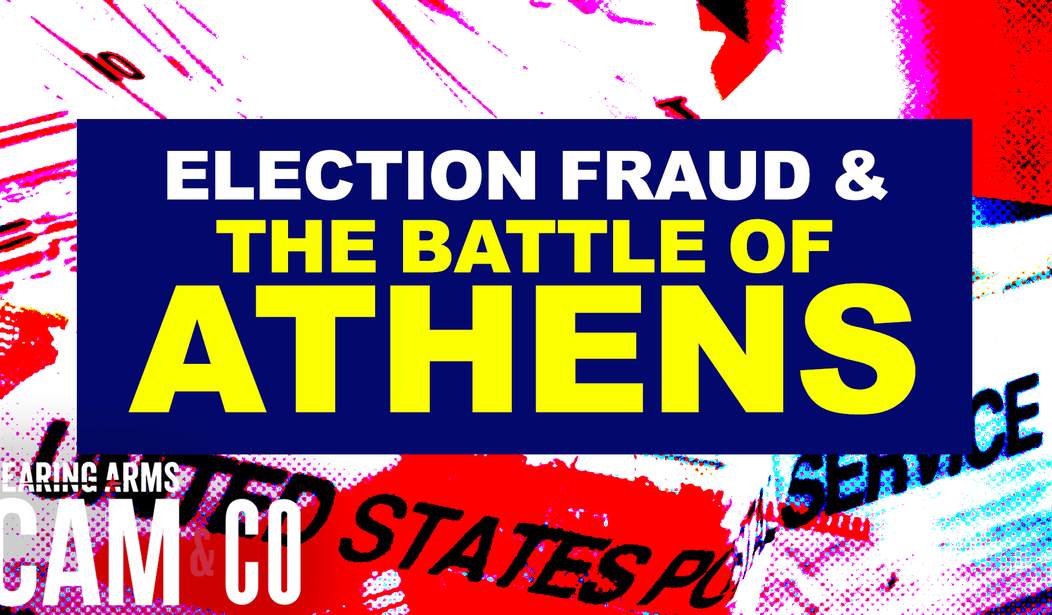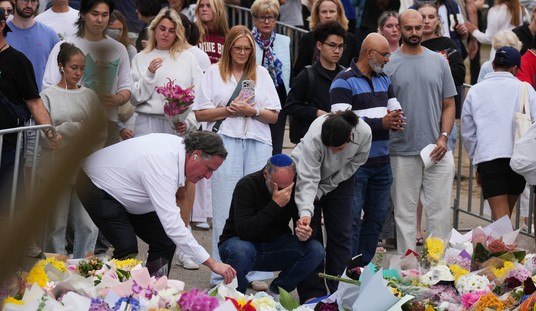Election fraud can take many forms, but thankfully we don’t see the type of brutal suppression of the vote that’s the focus of today’s Bearing Arms’ Cam & Co. Author Chris DeRose joins me on the show to talk about a largely forgotten story from U.S. history that made headlines at the time. In The Fighting Bunch: The Battle of Athens and How World War II Veterans Won the Only Successful Armed Rebellion Since the Revolution, DeRose provides the full story of how a group of young GIs took on the Memphis political machine run by E.H. Crump in the Tennessee’s McMinn County, ultimately going to war with the machine over the right to a free and fair election.
The Battle of Athens, which is also referred to sometimes as the McMinn County War, stemmed from the type of violent and overt voter suppression that we don’t see any longer, thankfully. The folks who were complaining that having to stand in line for a few hours to cast a ballot means that their vote was being suppressed have clearly never heard of Tom Gillespie, an elderly black farmer who was beaten and then shot in the back by a patrolman in Athens, Tennessee for trying to cast a vote in a county election on August 1st, 1946.
Gillespie was the first casualty in the Battle of Athens, but the fight had been brewing for several years before it erupted on that hot August afternoon. As DeRose explains, the Crump political machine was brazenly corrupt, and when it took over McMinn County life changed for the residents. For one thing, the members of the sheriff’s department were paid under a fee system which gave them cash money for every person they booked into the local jail. As you can imagine, the graft and corruption was rampant. Buses and cars would regularly be pulled over by sheriff’s deputies and the out-of-town occupants shaken down for money under the guise of being charged with drunkenness. Residents, meanwhile, lived under the thumb of Paul Cantrell, the local boss of the Crump machine, who controlled not only local law enforcement but local government, the schools, and the local paper.
When thousands of GIs returned to McMinn county in late 1945 and early 1946, they decided to overthrow the machine by running a slate of candidates of their own in the 1946 county elections. The GI Non-Partisan League was born in May of that year and fielded six candidates; three Democrats and three Republicans, and all opposed to Cantrell and his top deputy Paul Mansfield, who were running for sheriff and state senator, respectively.
By the time Election Day arrived on August 1st, Cantrell had hired some 200 new sheriffs deputies to “patrol” the elections. One veteran who was serving as a poll watcher was arrested and taken to the local jail after he requested the ballot box be opened and certified as empty before any official votes were cast, and Cantrell’s heavies did all they could to discourage supporters of the GI party from going to the polls.
They couldn’t stop Tom Gillespie, though. He showed up at his precinct in mid-afternoon, but when he attempted to cast his ballot a patrolman named C.M. “Windy” Wise punched Gillespie while wearing brass knuckles. The elderly black man turned and tried to run from Wise, but the so-called officer of the law drew his pistol and fired into Gillespie’s back.
Those were the first shots fired in what became the Battle of Athens, which ultimately involved dozens of veterans and members of the Memphis machine engaged in a full scale firefight over ballot boxes. When the shooting (and the dynamiting) finally stopped several hours later, the ballot boxes were in the hands of the GI Party members, and an honest counting of the ballots proved that the newly formed political organization had soundly defeated the Crump political machine.
These are the bare bones of the story of the Battle of Athens, but DeRose’s new book fully fleshes out the figures at the heart of the story for the very first time. For decades, many participants in the fight refused to say much about it, and the only person who ever faced legal consequences was Wise, the patrolman who was convicted of killing Gillespie (though he was only sentenced to three years for murdering him). DeRose, however, spent years doing research on the book, including gaining access to some witnesses who finally opened up about happened on August 1st and 2nd back in 1946.
Check out the entire conversation with Chris DeRose in the video window above to learn even more about this forgotten piece of American history, but for the full story pick up a copy of The Fighting Bunch online or at your local bookstore.









Join the conversation as a VIP Member